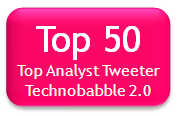This entry was cross-posted from Meanders: The Dow Brook Blog.
 Yammer announced on Wednesday that it has acquired oneDrum, a UK-based provider of file sharing and collaborative editing tools for Microsoft Office users. Financial details of the acquisition were not disclosed. oneDrum’s technology and people will be integrated into Yammer.
Yammer announced on Wednesday that it has acquired oneDrum, a UK-based provider of file sharing and collaborative editing tools for Microsoft Office users. Financial details of the acquisition were not disclosed. oneDrum’s technology and people will be integrated into Yammer.
In a briefing on the acquisition, Yammer CTO and Co-Founder, Adam Pisoni, stated that the deal was done to quickly accelerate movement toward Yammer’s primary strategic objective – to be the social layer, spanning key enterprise applications, in which its customers (and their extended business networks) get work done.
Yammer’s action is consistent with its strategy to release usable, but not ideal, functionality and then improve upon it as quickly as possible. Yammer introduced the homegrown Files component into its suite late last year. With oneDrum’s technology, Yammer will be able to improve its Files component by enabling syncing of files to desktop folders and mobile devices, as well as automatic sharing of new and updated files with other members of Yammer groups. As usual, Yammer seeks to occupy the middle ground, offering file sharing functionality that has some of the necessary enterprise-grade security and manageability that consumer Web services lack, while retaining as much ease-of-use as possible. Yammer’s ability to balance complexity and usability is what differentiates it from the majority of the other enterprise social software offerings in the market.
The current file creation and editing capabilities available in the Pages component of Yammer will be nicely complemented by the introduction of oneDrum’s ability to co-create and co-edit Office files (Excel and PowerPoint now, Word in development) with others. Many may interpret the addition of this capability, together with the added file sync and sharing functionality, as an indirect attack on Microsoft SharePoint by Yammer. Pisoni clearly stated that Yammer will continue to offer customers integrations with SharePoint, as well as with Box, Dropbox and other content repositories. He did, however, acknowledge that while Yammer is not intentionally targeting SharePoint, many of its customers see their Yammer networks negating existing SharePoint use cases.
Yammer’s real target appears to be email, which offers a single place where people may communicate, share content and get work done. Pisoni spoke about the symbiotic relationship between content and conversation in social networks, as well as the blurring line between content and communication. The former is clearly demonstrated by the frequency in which enterprise (and consumer) social interactions are anchored around a specific piece of content, whether that be a traditional document, blog post, wiki entry, status update, audio snippet, photo or video. The latter is evidenced by the growing enterprise use of blog posts, wiki entries and, especially, status updates to share content (and explicit knowledge) in small chunks, rather than waiting to gather it in a document that is distributed by email.
Pisoni’s assertion that the distinction between content and communication is blurring is interesting, but less persuasive. Much of the asynchronous communication within organizations is still only secondary to the content that is contained in attached (or linked) files. Corporate email use as a transmission mechanism for documents is a clear, common example. Yammer’s vision for decreasing email volume appears to involve using oneDrum’s support for real-time chat between individuals working together in an Office document (Excel and PowerPoint only at present) as a means to blend content and communication to help people get work done faster. It will be interesting to see if Yammer network members adopt this envisioned way of working as an alternative to entrenched communication and content sharing norms.
oneDrum was not well known in the U.S., as it was a very small vendor with a beta status offering. However, it appears that Yammer has made a good acquisition that will help the company, and its customers, address the changing nature of business organizations and work. The devil, of course, is in the details, so we will have to watch and see how well Yammer assimilates its first acquired company.




